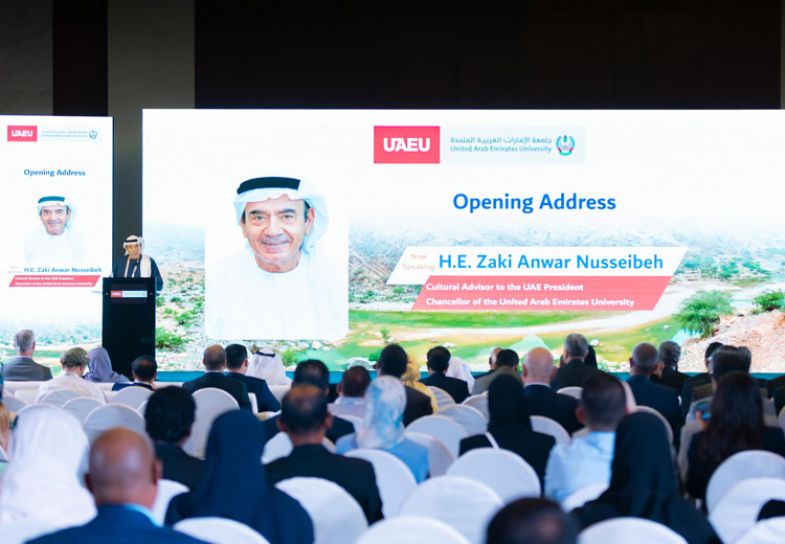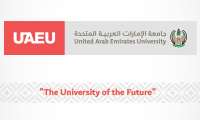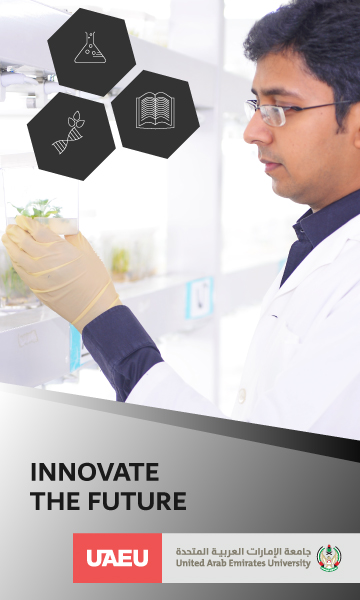
United Arab Emirates University’s second conference on water management and sustainability attracted global scholars and tackled important issues
Water management and sustainability are key issues in arid regions such as the United Arab Emirates (UAE). The lack of freshwater resources in such regions constitutes a major barrier to sustainable development. At the same time, rapid population growth, rising standards of living and urban expansion all consume far higher volumes of water, posing considerable challenges to how it is used and managed.
The United Arab Emirates University (UAEU) is already a leader in research in this area. In February 2024, the university held its second International Conference on Water Resources Management and Sustainability: Solutions for Arid Regions, a three-day event with the participation of 350 researchers from 72 countries. The conference aligns with UAE’s Water Security Strategy 2036, which aims to ensure water sustainability and continued accessibility under all circumstances.
In attendance at the conference was Zaki Anwar Nusseibeh, cultural advisor to the president of the UAE and UAEU’s chancellor, who noted that the university “has taken major steps in the field of environmental action, … continued the focus on the issue of water, setting its goal to find new efficient means and mechanisms to protecting water from all the wastage factors and to open new future prospects for additional resources”. The conference showcased the latest scientific research and innovations in water resources management and water scarcity, such as the use of artificial intelligence to model sustainable strategies. It also looked at the impact of water harvesting, groundwater reservoirs and flash flooding from rainfall.
The conference was organised under the umbrella of the university’s map for COP28, the United Nations’ annual environmental summit, which took place in the UAE in November and December 2023. The conference supports the UAE’s national efforts to achieve higher water resilience and greater sustainability, focusing on drought-related challenges and technology-related solutions as routes ahead for water conservation and management.
The conference attracted academics from many countries. One session, led by Sultan Qaboos University in Oman, showcased the research of 15 Omani scientists. Sixteen researchers from Saudi Arabia contributed to the activities of the conference. “These numbers confirm the success of the first edition of the conference, which was held during Expo 2020 in March 2022, reflected in the rise in participants in the second conference,” said conference chair Ahmed Ali Murad. He also added that the number of participating countries increased from 57 in the first conference to 72 in the second conference.
The opening ceremony outlined some of the global challenges in water sustainability in arid regions, including talks from Dave White, associate vice-president for research advancement at Arizona State University, Vijay Singh, professor in biological and agricultural engineering at the University of Texas A&M, who discussed emergency elements in arid land hydrology, and Mohsen Sherif, professor of water resources at UAEU, who discussed possible impact of climate change on water resources in arid regions. Scientific awards were given out to the best oral presentation, poster paper, and best presentation and research from a postgraduate student. More than 300 research articles were shown on the main conference themes, including 50 studies from Indian scientists, 27 studies from the US and 27 from Morocco. Overall, 31 scientific sessions were held during the three-day conference.
Finally, to complement the scientific and research-led presentations, the university organised two scientific trips for participants so they could learn about the geology of the Fujairah Mountain region, and the country’s dams, highlighting the UAE’s efforts to harvest rainwater to recharge groundwater reservoirs.
Find out more about the International Conference on Water Resources Management and Sustainability.



































